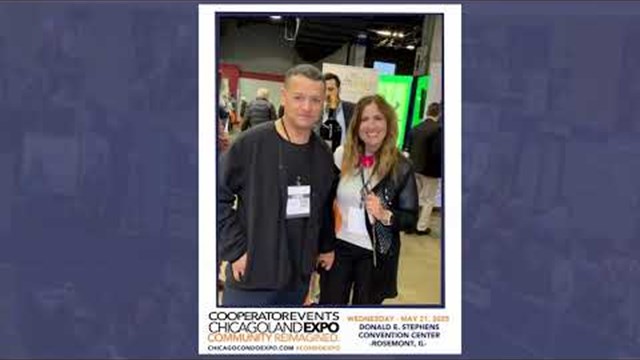While some condos and HOAs are lucky enough to have lawyers serve as members of their board, the majority of boards don’t have an in-house legal expert. They often reach out to their attorney to answer questions, vet documents, send the occasional stern letter to a contractor or recalcitrant resident, and handle any litigation that’s not avoidable by other means.
The problem is that sometimes the board will reach out too often, calling attorneys about things the board should already know, or which have nothing to do with the lawyer, or that are just variations of the same questions that are asked over and over. Then there are those boards that don’t call their lawyers enough, and try to do things on their own that they really shouldn’t be.
It depends on the lawyer and the attorney-client relationship, but a competent lawyer needs to be prepared to give difficult advice to the board members if the actions are not in the best interest of the association.
We polled some area lawyers to come up with a list of the “Top 5 Things Attorneys Wish Boards Knew.”
Who You Gonna Call?
Often times, boards make the mistake of taking legal matters into their own hands in an effort to save funds. However, this is a misstep that can lead to financial woes much greater than the cost of professional counsel.
“Every association should have an attorney upon whom they can rely for advice,” Mark Roth, an attorney and partner with the Chicago law firm of Orum & Roth, LLC, says. “A good attorney well-versed in association law will generally save the association much more than the cost of that lawyer’s advice. Most experienced association attorneys are able to answer a board’s more routine questions in a relatively short period of time. Boards should consult their association attorney before a contemplated actions is taken— not after,” he adds.
What good is having proper representation if you don't take full advantage of it? While your attorney is surely an expert on all things community association related, he or she is not omniscient. It's therefore vital for boards to keep counsel updated on any questions or concerns members might have. Doing so can prevent unnecessary litigation expenses in the long run.
“There’s no such thing as a bad question, or a dumb question when it comes to what the declaration provides or what the rules provide,” says James Stevens, senior counsel at the law firm of Tressler LLP in Bolingbrook. “A lot of times, I’ll see perfectly well-intentioned boards go down the wrong path when the declaration requires something else—maybe doing something at an owner’s meeting versus a board meeting, and not seeing that distinction. And unfortunately, we might have to go back and the board might have to redo its decision when a very simple question could have been asked.”
Legal counsel is not the only guidance a board needs. Charles M. Keough, a partner with the law firm of Keough & Moody, PC in Chicago, recommends hiring added help such as an engineer and an accountant.
According to attorney Sima L. Kirsch, whose practice is Sima L. Kirsch PC in Chicago, “Hire a professional for specialty specific work. A board is not expected to do all of the work, only to oversee that the work being done is accurate. A board should have a financial expert (CPA) to consult and rely upon—with assets and liabilities that belong to everyone, they shouldn’t play around.”
“You can rely on your attorney's opinion,” Kirsch says. “The Business Judgment Rule protects boards that rely on legal advice given by their counsel. Board members should take advantage of this whenever possible. A board that understands and applies the business judgment rule with their practices is a best practices board.”
Change it Up
Boards might find themselves stuck in a rut due to following previous members' footsteps too closely. Don't get caught in the trap of picking up old members' bad habits. If something is broken, fix it, Kirsch urges,
“Just because the previous board did it does not mean it is correct,” Kirsch says. “When a transition occurs, the new board cannot escape its fiduciary duty by merely saying, 'That's the way we've always done it.' A transition review of the state of the corporation and its operational systems is an exercise in best practices.”
Kirsch also recommends keeping on top of operating documents, and recommends revising them before an issue arises.
“Many associations’ operating documents are outdated and/or contain provisions unfriendly to current circumstances,” he says. “It is difficult to get enough votes to amend them when no issue exists and almost impossible when a community becomes divided over an issue.”
A Failure to Communicate
As any couples' counselor will say, strong and steady communication is essential to a successful relationship. This sentiment applies to the board/owners relationship as well.
“Communication is key—no one likes to get blindsided,” Kirsch says. “Owners are more likely to accept changes when they are aware of them from the beginning, have an opportunity to become involved in a dialogue, and understand the basis of the decision.” “While transparency is a best practice,” he continues, “the board should not release its internal discussions or opinions. State the issue, open it for discussion, have a second discussion, if needed and then take the vote.”
This leads to a frequently asked question: What is the best way for a board to be transparent?
Be Transparent
The best way to ensure owners feel like they are clued in to the happenings of the association is to make meetings as open and accessible as possible, Roth says. This includes not holding meetings unannounced to owners and making minutes available, whether it be through publishing minutes on a website, posting them on the property or sending them via email at owners' request.
Before sending out meeting minutes, make sure they are drafted correctly, as to minimize confusion and maximize clarity.
“Board meeting minutes should contain such standard information such as the date, start time and end time, and place of the meeting; and the board members who attended or were absent,” Roth says. “The meeting minutes should contain motions, votes and points of order. Finally, if there is an important, potentially contentious decision one board member may want to explain the thought process behind the board’s decision. For example, if the board is voting to take out a loan to pay for a project, the board may want to explain the results of any professional inspections necessitating the project, the number of lenders that the association contacted to discuss loan terms, the general terms of those loan proposals and the rationale for selecting the particular lender. That information may properly be included in the board minutes.”
Setting boundaries with owners is another important step in creating and maintaining transparency.
“Remind owners you’re not required to have a consensus,” Kirsch says. “To do this, re-set expectations. Create clear regulations and policies to establish uniformity of operation that works for your group. Explain you’re going to follow the operating documents, the law and best practices. Have an annual session for this purpose and lay it all out. If the group understands what is happening and what is expected, many issues fall away. Remind them, if they want to know more or have more input they can sign up for a committee or even run for the board.”
Choose a
Liaison
Want to know what irks a lawyer almost more than anything? It’s when several people from a board call about the same matter or when three different board members reach out on the same day to discuss three different issues.
“I think a liaison can be very useful as long as that person is diligent about sharing the attorney’s feedback with the other board members and that the person is also diligent about getting input from the other board members too,” Stevens says. “You don’t want to have the attorney liaison from the board be the only person that knows what’s going on with legal concerns. It can be very helpful and does save some attorney time because there are not 45 different questions coming in from each board member. The communication has to be free flowing both ways for it to really work well.”
By doing so, it provides a much more structured flow of information to the board and keeps the attorney better in the loop.
.Keith Loria is a freelance writer and a frequent contributor to The Chicagoland Cooperator.






Leave a Comment